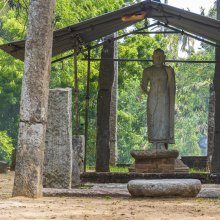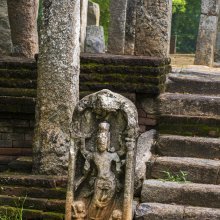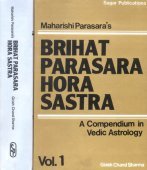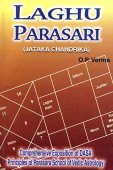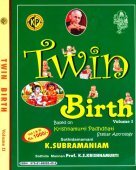House: 2 definitions
Introduction:
House means something in Hinduism, Sanskrit, the history of ancient India. If you want to know the exact meaning, history, etymology or English translation of this term then check out the descriptions on this page. Add your comment or reference to a book if you want to contribute to this summary article.
Images (photo gallery)
(+72 more images available)
In Hinduism
Shilpashastra (iconography)
Source: Shodhganga: Elements of Art and Architecture in the Trtiyakhanda of the Visnudharmottarapurana (shilpa)Houses in ancient Indian Painting (citra) are associated with Villages, according to the Viṣṇudharmottarapurāṇa, an ancient Sanskrit text which (being encyclopedic in nature) deals with a variety of cultural topics such as arts, architecture, music, grammar and astronomy.—In the context of identification of some particular places through picture, the Viṣṇudharmottarapurāṇa gives some instructions. According to this book, a picture of village should be adorned with some houses along with gardens.

Shilpashastra (शिल्पशास्त्र, śilpaśāstra) represents the ancient Indian science (shastra) of creative arts (shilpa) such as sculpture, iconography and painting. Closely related to Vastushastra (architecture), they often share the same literature.
India history and geography
Source: Singhi Jain Series: Ratnaprabha-suri’s Kuvalayamala-katha (history)Houses (of citizens) were commonly painted on Citrapaṭas (depicting scenes of human life) in ancient India, as mentioned in the Kathās (narrative poems) such as Uddyotanasūri in his 8th-century Kuvalayamālā (a Prakrit Campū, similar to Kāvya poetry).—Pages 190 ff.: Here we have a description of the second Citrapaṭa. It was a painting depicting the city of Campā with its people, houses, citizens, beautified with bejewelled ornaments, market places, its rich merchant and his wife and detailed account of one’s bhavāntara or past life.

The history of India traces the identification of countries, villages, towns and other regions of India, as well as mythology, zoology, royal dynasties, rulers, tribes, local festivities and traditions and regional languages. Ancient India enjoyed religious freedom and encourages the path of Dharma, a concept common to Buddhism, Hinduism, and Jainism.
See also (Relevant definitions)
Starts with: House lime, House maguey, House-holder.
Ends with: Bording-house, Slaughtering house, Storehouse.
Full-text (+7158): Griha, Geha, Agara, Alaya, Veshman, Palli, Kridagriha, Grihin, Grihini, Grihaja, Sadman, Alinda, Antargriha, Shala, Sadana, Nivesana, Grihya, Avasathya, Veshaka, Bhavana.
Relevant text
Search found 437 books and stories containing House; (plurals include: Houses). You can also click to the full overview containing English textual excerpts. Below are direct links for the most relevant articles:
Settlement in Early Historic Ganga Plain (by Chirantani Das)
Part 12 - House remains of Vārāṇasī < [Chapter VI - Vārāṇasī: Emergence of the Urban Centre and Seat of Administration]
Part 10 - Cultural periods of Vārāṇasī < [Chapter VI - Vārāṇasī: Emergence of the Urban Centre and Seat of Administration]
Part 13 - Sanitary Devices of Vārāṇasī < [Chapter VI - Vārāṇasī: Emergence of the Urban Centre and Seat of Administration]
Vernacular architecture of Assam (by Nabajit Deka)
Garo Vernacular Architecture < [Chapter 6]
Rabha Vernacular Architecture < [Chapter 7]
Dimasa Kachari Vernacular Architecture < [Chapter 7]
Manasara (English translation) (by Prasanna Kumar Acharya)
Chapter 36 - The situation and measurement of dwelling houses (gṛha-māna-sthāna)
Chapter 40 - The royal palaces (rājaharmya)
The Matsya Purana (critical study) (by Kushal Kalita)
Part 2.1 - Measurement of Buildings < [Chapter 7 - Art and Architecture in the Matsyapurāṇa]
Part 1c - Architecture (vāstu) in the Matsyapurāṇa < [Chapter 7 - Art and Architecture in the Matsyapurāṇa]
Part 1a - Note on Architecture (vāstu) < [Chapter 7 - Art and Architecture in the Matsyapurāṇa]
Kautilya Arthashastra (by R. Shamasastry)
Chapter 8 - Buildings < [Book 3 - Concerning Law]
Chapter 36 - The Duty of a City Superintendent < [Book 2 - The duties of Government Superintendents]
Chapter 35 - Revenue-Collectors and Spies < [Book 2 - The duties of Government Superintendents]
Brihat Samhita (by N. Chidambaram Iyer)
Related products
(+15 more products available)
